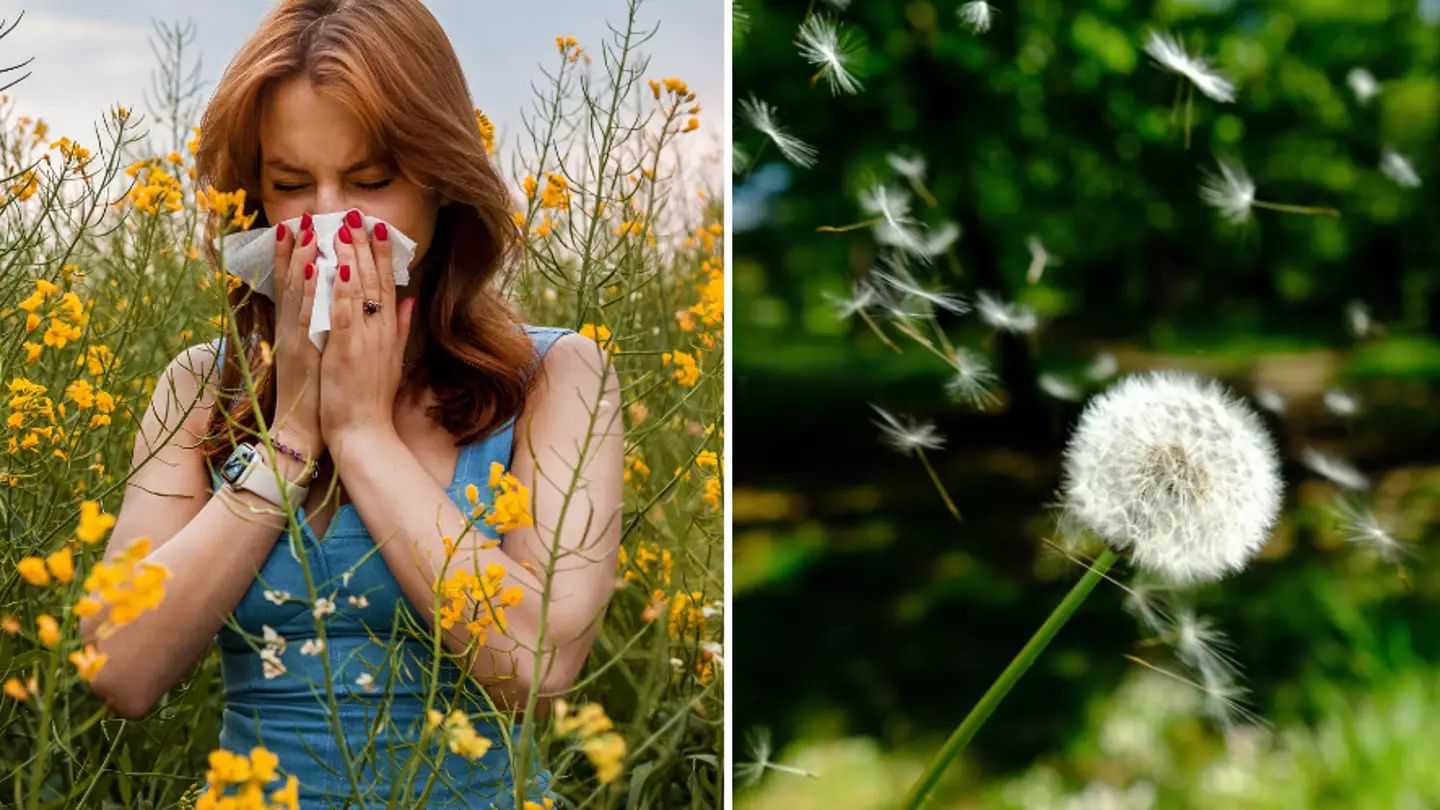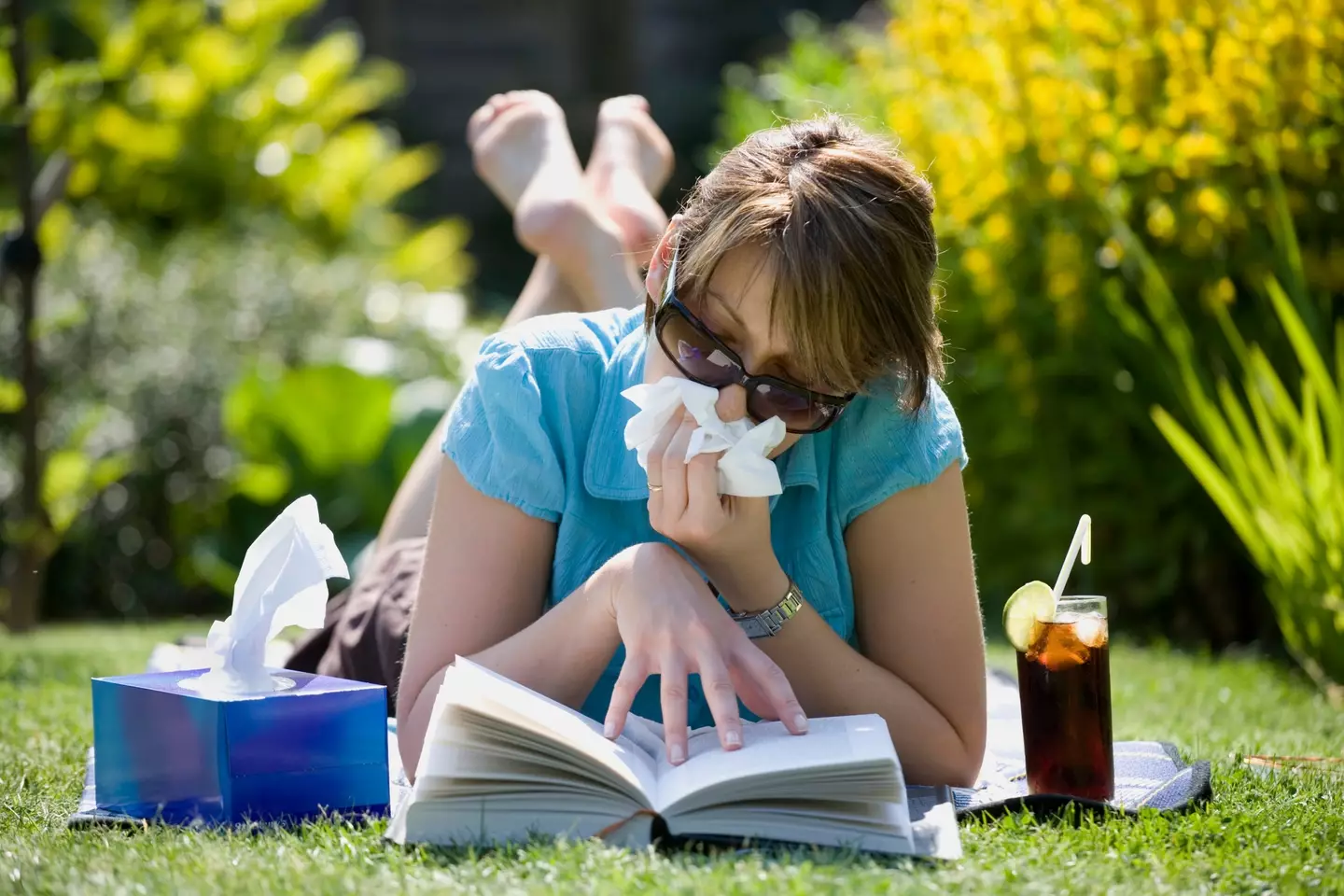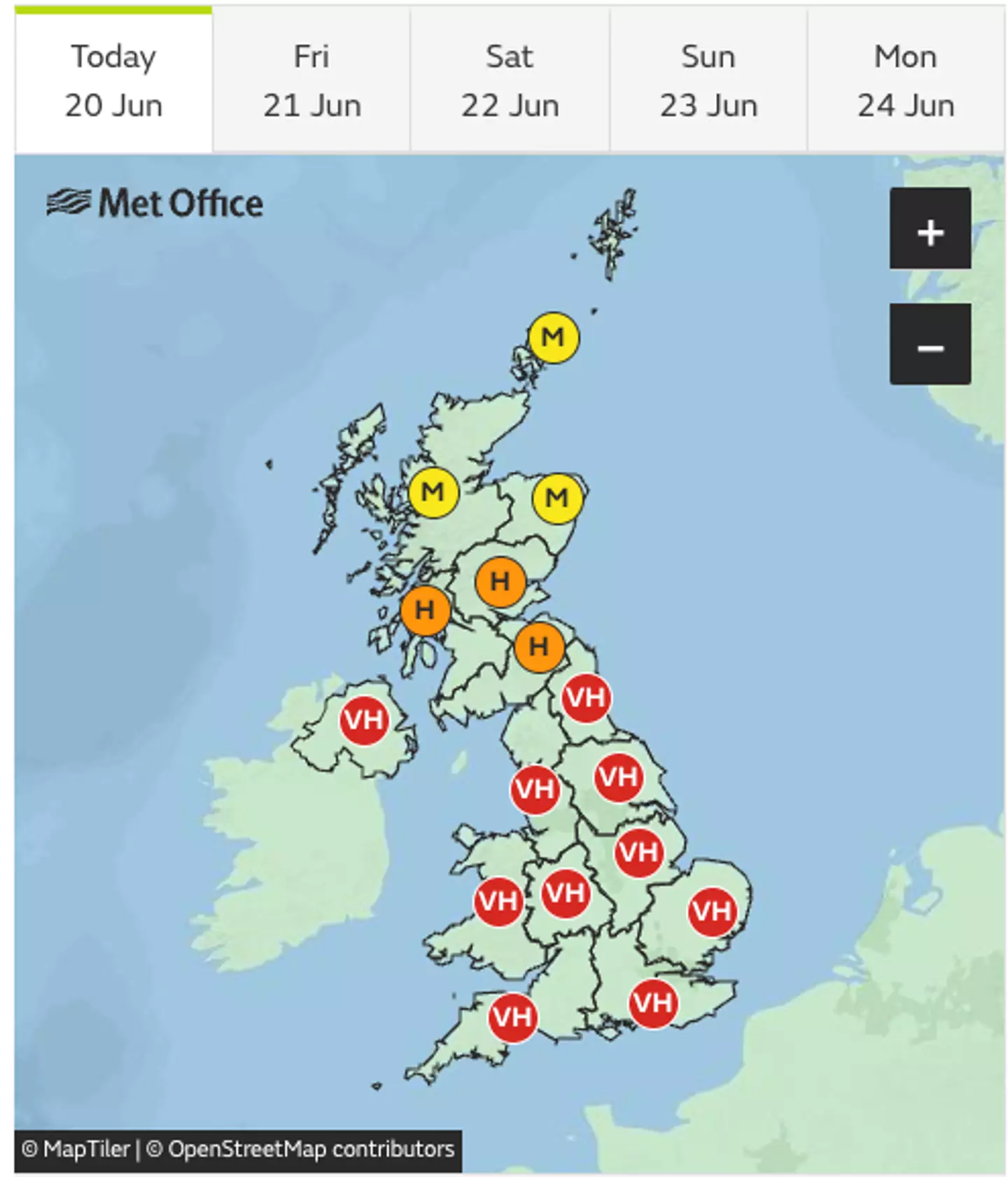
Earlier today, seemingly delightful news that the UK is soon to be blessed with a much-needed heatwave broke - yippe!
And while the announcement has made the day of thousands of Brits across the country - many of whom have tragically endured dreary days and dark skies for what feels like months - it has now been reported that the dramatic change in the weather will come with one adverse consequence - a dreaded 'pollen bomb'.

As I say, we were over the moon earlier today when the Met Office stated that the weather will be 'predominantly fine and settled' through the Monday 24 June - Wednesday 3 July period with 'much of the country turning much warmer than we have seen in recent weeks'.
Advert
It's now being said that our days will be mostly 'dry throughout' and 'likely to turn increasingly warm as we move into next week'.
So, if you love a good sunbathe, you'll be ecstatic to know that there's a chance that this could persist for much of the rest of the period, turning increasingly hot - get in!
Getting into the facts and figures, according to the long range forecast, we'll see highs of a whopping 27C next Wednesday (26 June) in London.
And though the rest of the country won't be quite as warm (sorry, Northerners!) Manchester will have highs of 24C next Monday and Tuesday (24 and 25 June), Liverpool will reach 23C on Tuesday, and Leeds will reach highs of 24C both days.
As many victims of the spring-summer season will be painfully aware, however, along with the warm weather comes a plethora of frustrated hay fever symptoms.

And though a tickly nose, itchy eyes and a scratchy throat aren't exactly life-threatening, health experts are today warning asthma sufferers to take extra precaution in the wake of a 'pollen bomb'.
According to the Met Office, pollen levels are very high throughout England, Wales and Northern Ireland today, and in most regions they'll remain that way until next week.
Tissues at the ready, folks.

Erika Radford, Head of Health Advice at Asthma + Lung UK, told The Sun this week: "More than three million people with asthma are affected by pollen and when levels are at their highest it can be deadly for those with a lung condition.
"When pollen particles are breathed in, they can cause inflammation in the airways and get into the lungs, making it harder for those with lung conditions to breathe which can be terrifying."
And when it comes to asthma sufferers protecting themselves, she advises: "Checking pollen and air pollution forecasts in your local area every day is a good idea, so you can avoid going outdoors as much as possible on high pollen days.

"You should always have your reliever inhaler nearby, even when at home, in case pollen does trigger symptoms like breathlessness or chest tightness.
"Reliever inhalers quickly relax the muscles in the airways to help you breathe more easily when symptoms arise."
Erika continued: "Another thing you can do is to take antihistamine medicines to relieve your hay fever symptoms.
"In addition, your GP can prescribe a steroid nasal spray to help reduce the allergic reaction."